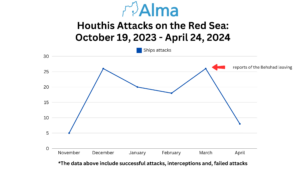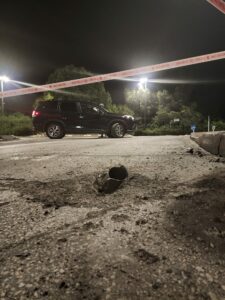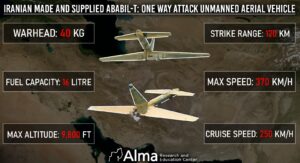A few weeks into the “Iron Swords” war, Israel is focused on eliminating the Hamas terror army from Gaza, but it is not yet clear whether Iran and Hezbollah will avoid escalating the Lebanese arena into the primary war arena or not.
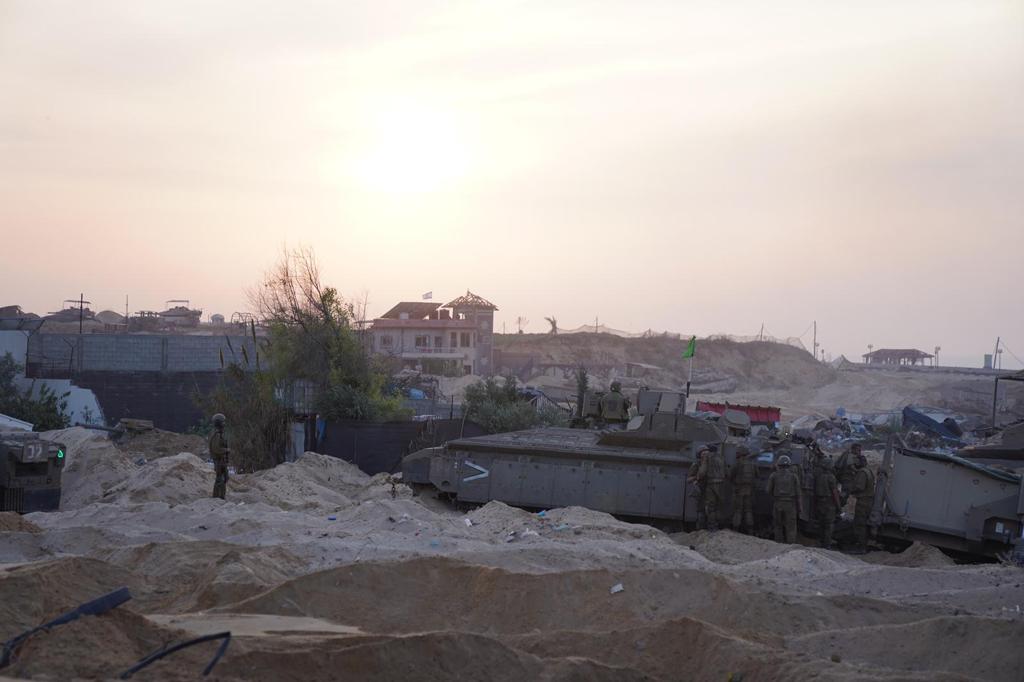
The IDF’s ground operations are expanding since Friday, while the IAF’s airstrikes have been relentless, targeting the heart of Hamas’s offensive-terror capabilities in the heart of Gaza City and other northern territories like Zaytoun, Shati, and Shejaiya, where Hamas is intensifying its fortifications.
Large numbers of IDF ground forces are amassed within northern Gaza.
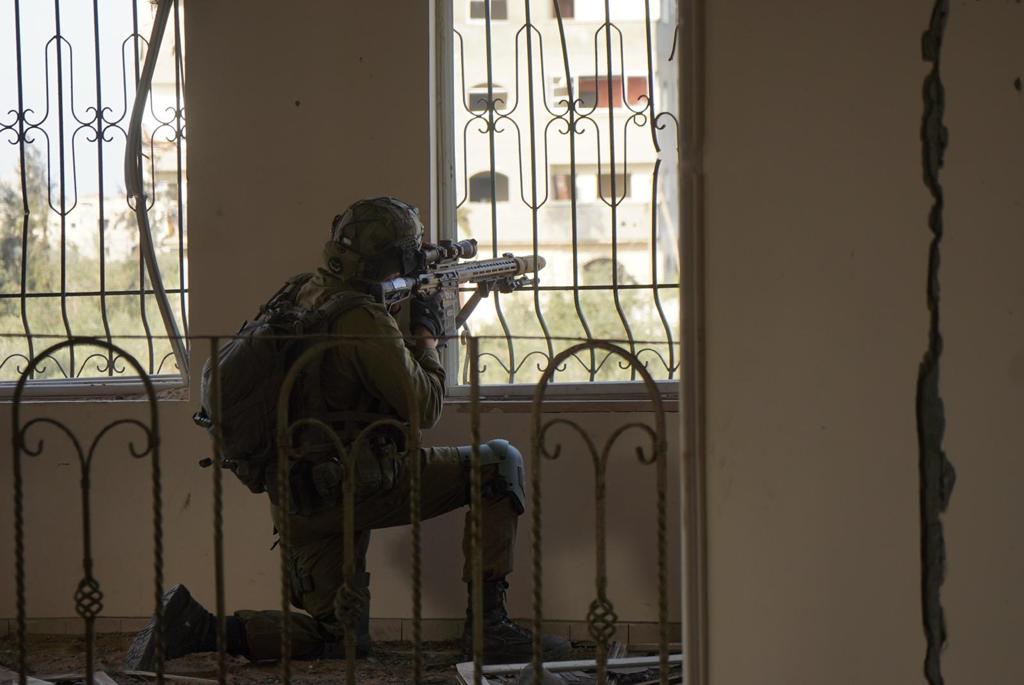
After exposing Hamas headquarters in Shifa hospital it is clear that Israel seeks to find a way to eliminate this one as well – while “working with the international community” to minimize collateral damage (according to IDF spokesperson statement).
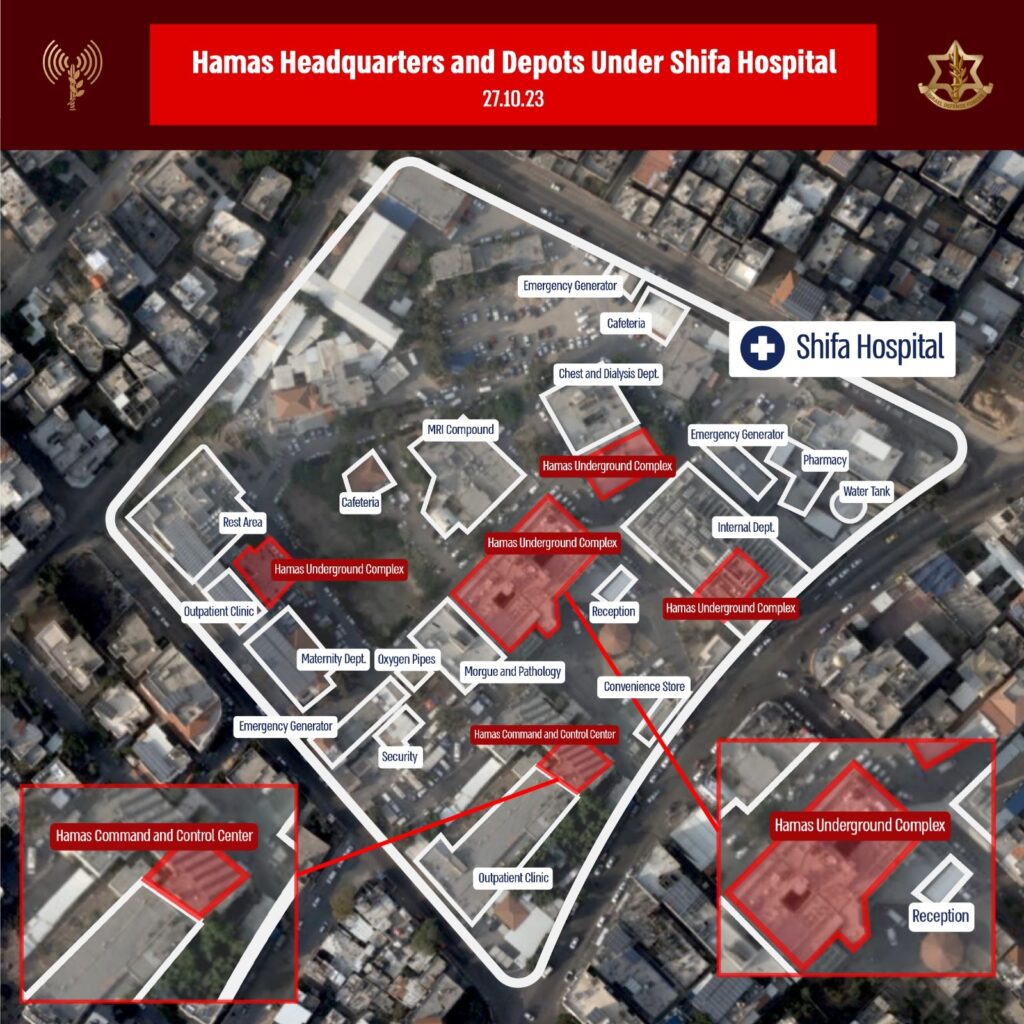
A few weeks after the mass murder of 1400 Israelis by Hamas death squads who raided from Gaza, and the taking of 230 Israeli hostages, Israel zeroes in on Gaza, yet it’s crucial to note that this isn’t merely an Israel-Hamas conflict, but a broader confrontation involving regional actors such as Hezbollah and Iran.
Iran’s regional axis includes the two terror armies in Gaza, Hamas, and Palestinian Islamic Jihad, but its centerpiece is in Lebanon, where Hezbollah, with over 200,000 warheads in its arsenal (including some 70,000 rockets, 145,000 mortars, and precision-guided missiles) and thousands of terrorist – trained to invade into Israel and execute a similar plan as of Hamas.
Israel’s strategic focus is on the necessary goal of completely dismantling Hamas, including its leadership, military operations, and working mechanisms, as reiterated by IDF Chief of Staff Lt. Gen. Herzi Halevi on October 23.
Israel’s military has made it clear: nothing short of the destruction of Hamas will suffice to ensure Israeli security, in the wake of the massacre of 1400 Israelis in the South on October 7.
The IDF has made it clear that Israel alone will be making the hard decisions that come with a war at its borders, rather than thousands of kilometers away, as the United States and its allies are used to when they took on ISIS and Al-Qaeda.
Yet, the focus on Gaza shouldn’t overshadow another imminent threat—Hezbollah in the North. On the same day, October 23, that the IDF launched intensive air operations in Gaza, it eliminated three Hezbollah missile squads and shot down a UAV infiltrating from Lebanon. This was the reality on the northern border of Israel almost every day since Hamas’ invasion.
So far, Hezbollah chief Hassan Nasrallah and his Iranian patrons have decided to fight a ‘low intensity’ campaign to harass Israel from the North and make preparations for invasion by targeting Israeli security and surveillance measures on the borderline. So, we have no guarantees that this situation will remain.
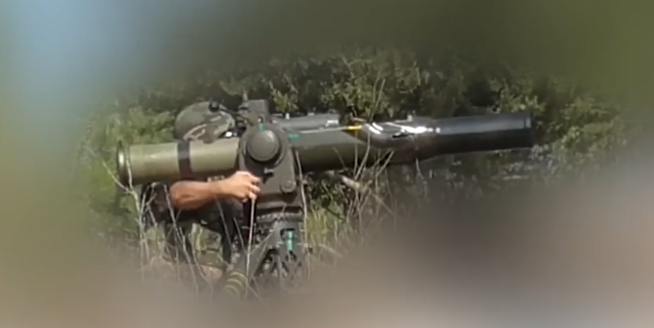
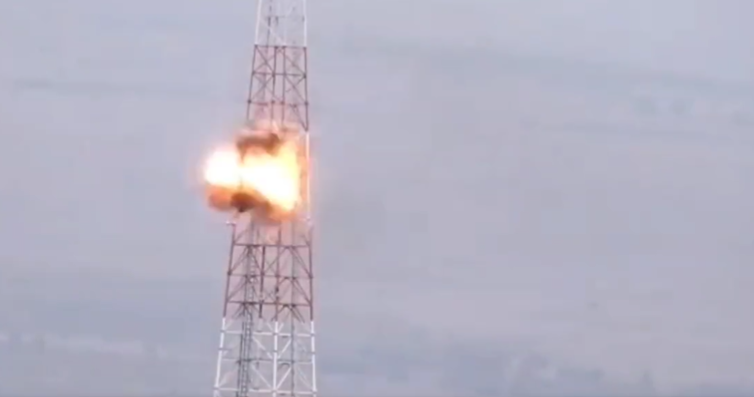
While Israel focuses its ground operation in Gaza, Hezbollah may not stand idly by and allow Israel to concentrate its military efforts on one front. It’s worth remembering that Hezbollah is another Iran-backed entity and would likely coordinate its strategy with Tehran. This makes Israel’s combat calculus more complex.
This conflict is more than just Israel versus Hamas; it’s essentially a confrontation between a U.S.-led alliance of life-seeking countries, and a coalition of radical forces, led regionally by Iran, which is a close partner of Russia, “looking to establish a new world order” – as described by Brig. Gen. Res. Yossi Kuperwasser.
Moreover, Iran’s recent emboldening actions in the region—reaching more than 60% uranium enrichment and selling UAVs to Russia—have strengthened the resolve of its terrorist proxies and partners while they completed their operational preparedness for war.
There is a dangerous tendency to project Western geopolitical and strategic considerations onto non-Western radical terrorist adversaries, a trap that Israel cannot afford to fall into.
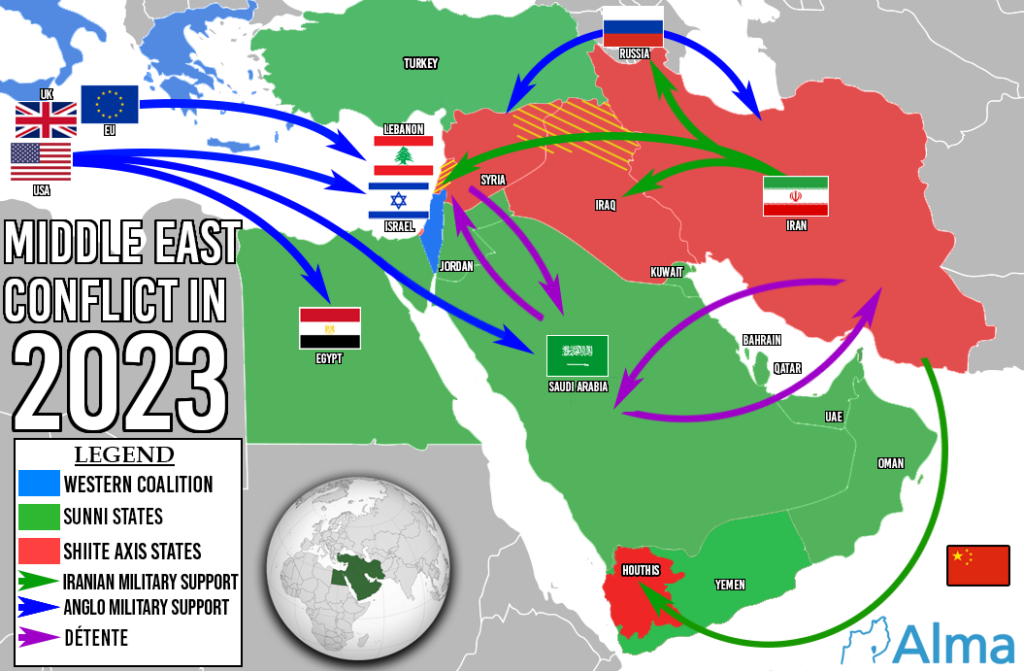
Israel will have to prepare for the scenario of a larger Hezbollah escalation whether this transpires or not.
The idea that Hezbollah is somehow deterred from bringing devastation to Lebanon should be treated with as much skepticism as the pre-war concept that Hamas was deterred by Israel and had prioritized Gaza’s economy and governing duties over jihadist mass murder.


